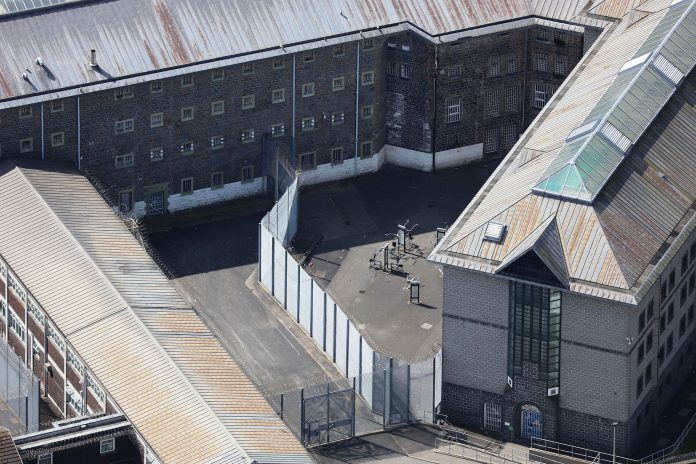Former Prime Minister Rishi Sunak and his ministers are guilty of the prison crisis and bear full responsibility for failing to do their jobs, the UK Justice Secretary said, according to The Guardian.
Shabana Mahmood said thousands of prisoners will go on early release to prevent the disaster created by Sunak’s Conservative Party. She stated:
Those responsible – Sunak and his gang in No 10 – should go down in history as the guilty men. The guilty men who put their political careers ahead of the safety and security of our country. It was the most disgraceful dereliction of duty I have ever known. Time and again, they ducked the difficult decisions that could have addressed this challenge. Instead, they kept the public in the dark about the state they had left this country in.
In order to prevent the prison system from collapsing, the Secretary of Justice has confirmed the plans to release some inmates after serving 40 per cent of their sentences and initially send fewer people to prison. Despite, the plans have so far come to a standstill due to fears of a lack of support in parliament. However, if the situation resolves and parliamentary support emerges, thousands of prisoners will eventually go free under the new scheme after they have served 40 per cent of their sentences. The government will also hire 1,000 probation officers to address prison overcrowding.
The policy as “the only way to avert disaster,” especially highlighting that if there is a shortage of prison places, then the courts will have to delay the imprisonment of criminals and the police will not be able to arrest dangerous criminals, Mahmoud said.
In addition, the government will temporarily reduce the proportion of certain custodial sentences served in prison from 50 per cent to 40 per cent in England and Wales from September. The government will introduce safeguards and exemptions to ensure public safety and clear release plans. Serious violent, sexual and domestic violence offences will be automatically excluded. These will include:
- Stalking offences.
- Controlling or coercive behaviour in an intimate or family relationship.
- Non-fatal strangulation and suffocation.
- Breach of restraining order, non-molestation order, and domestic abuse protection order.
Therefore, the scheme will see several thousand prisoners released earlier this year. The number of prisoners will gradually decrease, according to sources. Although some violent offenders with sentences of less than four years will be eligible for the programme.
When prisons are full, violence rises – putting prison officers on the frontline at risk. When no cells are available, suspects cannot be held in custody. This means vanloads of dangerous people circling the country, with nowhere to go. The police would have to use their cells as a prison overflow, keeping officers off the streets. Soon, the courts would grind to a halt, unable to hold trials. With officers unable to act, criminals could do whatever they want, without consequence. We could see looters running amok, smashing in windows, robbing shops and setting neighbourhoods alight. In short, if we fail to act now, we face the collapse of the criminal justice system. And a total breakdown of law and order, Mahmood stated after taking a tour of HMP Bedford and HMP Five Wells correctional facilities.
Despite government efforts to address the issue, grievances and questions have already erupted among various groups. Unions have expressed concern about the service’s ability to cope with the high number of exemptions and have called for pay rises. Plus, anyone released under the new scheme will remain strictly on licence by the Probation Service through measures that may include electronic tagging and curfews. Martin Jones, Chief Inspector of Probation, has also expressed concerns about the capacity and preparedness of the probation service, stating that the service is already working three times as hard.
“It’s really important to say the probation service has a caseload nearly three times the number of those in prison. Now, they need to ensure that they identify the risk that those people represent and that they identify what their needs are when they leave prison. Do they have accommodation? Do they have jobs to go to? Do they have, for example, drugs and mental health support in the community? Now, my concern is, is there enough time to get that right, to ensure they get the right information and that they can then deal with those people effectively when they leave prison,” he said.
In turn, Mahmood outlined plans to employ more than 1,000 additional probation officer trainees by March 2025, which will allow for greater supervision and management of offenders once they are discharged. She said:
There is now only one way to avert disaster. I do not choose to do this because I want to… but we are taking every protection that is available to us… let me be clear, this is an emergency measure. This is not a permanent change. I am unapologetic in my belief that criminals must be punished. The measures I have set out are not a silver bullet. But… they will give us the time we need to address the prisons crisis, not just today but for years to come. That means continuing the prison building programme. And only by driving down reoffending will we ever find a sustainable solution to the prisons crisis.
